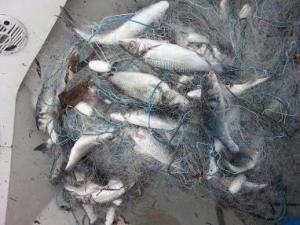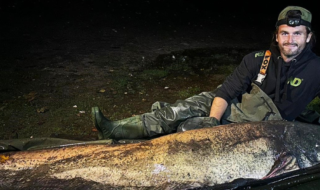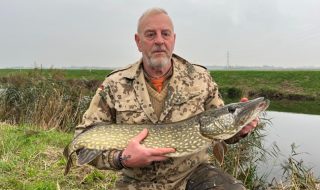The publication of the government’s long awaited, and extensively leaked, Fisheries White Paper – Sustainable fisheries for future generations – has met with a largely lukewarm response from organisations representing the UK’s 800,000 recreational sea anglers. Despite claiming to want to move towards ‘a fairer share of fishing opportunities’ and to ‘improve the sustainability of the fishing industry …. while protecting our precious marine environment’ the White Paper rules out any serious reforms to the existing system of quota allocation thereby underlining the disproportionate influence that that the larger commercial fishing organisations have had on the process.
The Angling Trust met with DEFRA officials and ministers earlier in the year and submitted a comprehensive dossier of the expectations of recreational sea angling (RSA). Some recognition of RSA did feature in the final White Paper after previous versions had remained silent on measures that could be taken to improve a sport which delivers many social, health and wellbeing and economic benefits. For many children and young people angling is often their first experience of interacting with the natural world.
Sea Angling 2012, the study of Recreational Sea Angling carried out by CEFAS for Defra shows that total resident sea angler spending in 2012 was estimated to be £1.23bn, equivalent to £831million direct spend excluding imports and taxes. This directly supported 10,400 full time jobs.
Sea anglers have been offered the distant prospect of ‘the allocation of some fishing opportunities specifically for recreational angling’ from whatever remains after the commercial sector have filled their nets.
Calls from the Angling Trust to formally recognise the economic and societal benefits of RSA were partly acknowledged, as was our call for the UK to draw on international examples of best practice in fishery management and stock rebuilding:
“We will consider how we can further integrate recreational angling within the new fisheries framework recognising the societal benefits of this activity and impacts on some stocks”
“We will learn from best practice in other fisheries nations, such as Iceland and New Zealand, where the commercial fishing industry and the recreational sector works in closer partnership with government while making a greater financial contribution.”
However, such statements were so heavily qualified that sea anglers are unlikely to be convinced that much of a ‘Brexit Dividend’ is coming their way. The Angling Trust will be writing to Environment Secretary Michael Gove seeking a meeting to clarify the government’s intentions.
Martin Salter, Head of Campaigns at the Angling Trust, said: “Whilst there are some welcome statements in the Fisheries White Paper it appears to us to be a missed opportunity to radically reform our outdated and discredited fishery management regime. Ministers can’t on the one hand claim that Britain’s diminishing fish stocks are a ‘public resource’, to be shared by all sectors, and on the other, refuse to make changes to the monstrously unfair quota system which essentially privatises the vast majority of fishing opportunities to the advantage of a handful of larger commercial interests. We intend to remind ministers of their responsibility to manage our public marine fishery resources for the nation as a whole.”
Tim Macpherson, Angling Trust board member and Saltwater Boat Angling publisher, added: “Any new management of the UK’s marine fishery resources must aim for optimum economic and societal benefit rather than perpetuating a commercial closed shop. In a number of cases, particularly with species such as bass, mullet and wrasse, best value from this public resource would be obtained by managing a number of species wholly or primarily for the benefit of the Public Recreational Sea Angling Sector.
There are health benefits from encouraging more people out of doors sustainably catching fish for fun or for the family table as well as the increase in livelihoods and investment in the thousands of businesses supporting recreational sea angling.”






